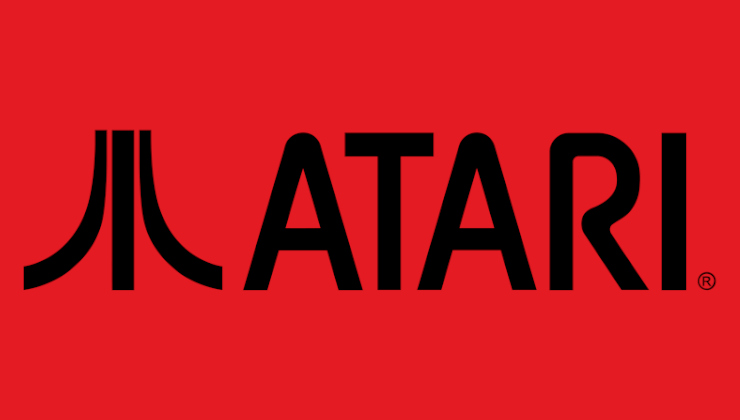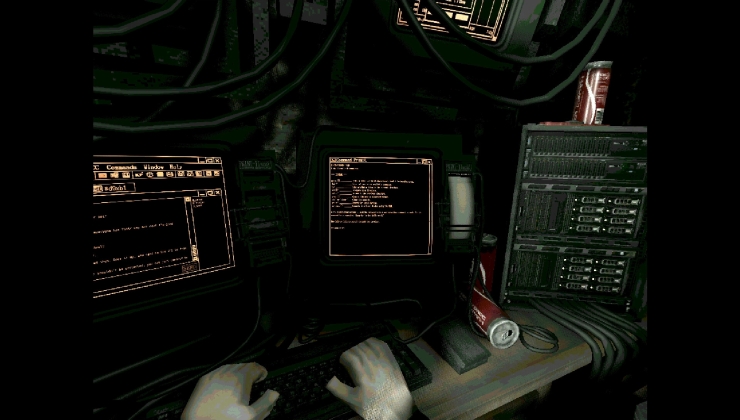Vue lecture
Linux 6.17 Improves NUMA Locality For SMP Call Rather Than Deferring To Random CPU Core
After all of these years of Linux dominating the high performance computing (HPC) space and other industries, one might think (most) all the interesting performance nuggets have been uncovered and well thought out and robust fallbacks in place across all important code paths. As we showcase almost each cycle, interesting new performance bits to be uncovered within the Linux kernel. For Linux 6.17 thanks to a NVIDIA engineer is applying a better fallback for NUMA locality rather than simply picking a random CPU core...
Longtime Linux Kernel Engineer With 14 Years At Intel Is Now At Meta
Facebook's Meta already employs an all-star team of Linux kernel engineers and it doesn't appear that they are over in recruiting top-tier Linux kernel talent. One of Intel's senior Linux software engineers is now the latest high profile kernel developer onboard at Meta...
Proton 10.0-2 Beta Delivers More Enhancements For Linux Gaming
Proton 10.0-2 beta was released today by Valve and CodeWeavers for furthering this Wine-derived software powering Steam Play for running Windows games on Linux with great success...
Proton 10.0-2 (beta) brings even more gaming improvements to Linux, SteamOS / Steam Deck
Valve have released the second major Beta for Proton 10, as we get closer to the stable release for gaming on Linux, SteamOS / Steam Deck.
 .
.
Read the full article on GamingOnLinux.
Gnuinos 2025.07.29
Linux 6.17 Staging Continues Cleaning The Realtek RTL8723BS Driver
The staging area of the Linux kernel, where preliminary code initially appears to mature until being promoted out, continues seeing a lot of code churn. With Linux 6.17 the staging updates were submitted and now merged with one driver in particular standing out...
spirit 16.1
Xtraceroute Ported To GTK4 + Vulkan For Demonstrating The Open-Source Potential For AI
Christian Schaller, a Fedora developer and Director of Software Engineering at Red Hat, recently began exploring the potential of AI usage more from the open-source/Linux perspective. He was left impressed from his ability to easily generate a Python application for internal Red Hat use to porting the venerable Xtraceroute program to GTK4 and Vulkan...
Fish is Like Bash With a Brain — Here’s How to Try it on Ubuntu
 Fish might be the Bash alternative you didn't know you needed, thanks to features like highlighting, and smarter command suggestions. Learn how to install it on Ubuntu.
Fish might be the Bash alternative you didn't know you needed, thanks to features like highlighting, and smarter command suggestions. Learn how to install it on Ubuntu.
You're reading Fish is Like Bash With a Brain — Here’s How to Try it on Ubuntu, a blog post from OMG! Ubuntu. Do not reproduce elsewhere without permission.
xf86-video-amdgpu 25.0.0 Released With Two Years Worth Of Fixes
It had been two years since the last update to the AMDGPU X.Org DDX driver but now xf86-video-amdgpu 25.0.0 is now available for those relying on this driver/hardware-specific driver for X.Org enabled Linux systems rather than the xf86-video-modesetting generic driver or a Wayland-based desktop...
Atari set to acquire 82% of Thunderful Group AB, as Thunderful announce they're "restructuring"
Even more game industry consolidation going on. Atari has entered into an agreement with Thunderful Group AB to acquire most of it.
 .
.
Read the full article on GamingOnLinux.
AMD Streaming SDK Updated With Linux Support - But Recommending X.Org Over Wayland
AMD's GPUOpen group today released the AMD Interactive Streaming SDK 1.1 release that now delivers Linux support alongside the existing Microsoft Windows support. The AMD Interactive Streaming SDK is designed to provide pieces for developers to build-out low-latency streaming solutions for cloud gaming, virtual desktop infrastructure (VDI), and embedded applications. This MIT-licensed streaming SDK was originally launched by AMD back in March as Windows-only while now is thankfully also native to Linux...
Sony sues Tencent over Light of Motiram calling it a "slavish clone" of the Horizon Zero Dawn series
It was only a matter of time really on this one. Sony have now formally begun legal action against Tencent for Light of Motiram.
 .
.
Read the full article on GamingOnLinux.
Farewell Benchmarks Of Intel's Clear Linux On AMD EPYC Shows More Performance Left To Tap
Last week I ran the last planned benchmarks of Intel CPU performance on Clear Linux vs. Ubuntu with Intel having ceased development of Clear Linux following the restructuring at the company. In today's article is a final look at how the AMD EPYC performance compares on Clear Linux relative to Ubuntu Linux and AlmaLinux. An AMD EPYC 9965 "Turin" dual socket server was used for showing the strong out-of-the-box performance on Intel's Clear Linux even for this competing server processor.
Cerebral psychological horror s.p.l.i.t from the dev of Buckshot Roulette is out now
Costing less than £3, here's your chance at some cheap thrills with the release of s.p.l.i.t from Buckshot Roulette developer Mike Klubnika.
 .
.
Read the full article on GamingOnLinux.
Seriously cool car combat game FUMES has entered Early Access
FUMES really impressed me with the demo, and now you can jump in and blow some vehicles up in this fast-paced single-player car combat game.
 .
.
Read the full article on GamingOnLinux.
Terminator 2D: NO FATE moves to an October release
Reef Entertainment announced recently that Terminator 2D: NO FATE has moved the release date from September to October 31st.
 .
.
Read the full article on GamingOnLinux.
SoulGame Studio release Flash classics in the Swords & Souls Legacy Collection
The new Swords & Souls Legacy Collection from SoulGame Studio brings five Flash classics back with a Steam release.
 .
.
Read the full article on GamingOnLinux.
Linux 6.17 Lands New file_getattr & file_setattr System Calls
Along with the better handling of multi-device file-systems such as Btrfs' native RAID capabilities and now allowing more efficient writing of zeroes to modern storage devices, the number of VFS pull requests for Linux 6.17 also added some other extra goodies...
Stardock Entertainment revealed Elemental: Reforged bringing together multiple games
Stardock Entertainment have announced Elemental: Reforged, which is kinda of like a super remaster of three different games to finally realize their vision.
 .
.
Read the full article on GamingOnLinux.
Volumio 3.832
A 10x Workaround & Less Network Egress Downtime Change Submitted For Linux 6.17
The kernel locking changes submitted today for Linux 6.17 contain a temporary change worth discussion for yielding a 10x speed-up of a particular function call and as part of that yielding less network egress downtime until a better solution is developed...
EROFS Metadata Compression Lands Plus A ~2.5x Speedup For Reading Directories
Merged on Monday were the EROFS file-system updates for Linux 6.17. EROFS continues to be a common read-only file-system choice for some mobile/embedded devices as well as container use-cases...